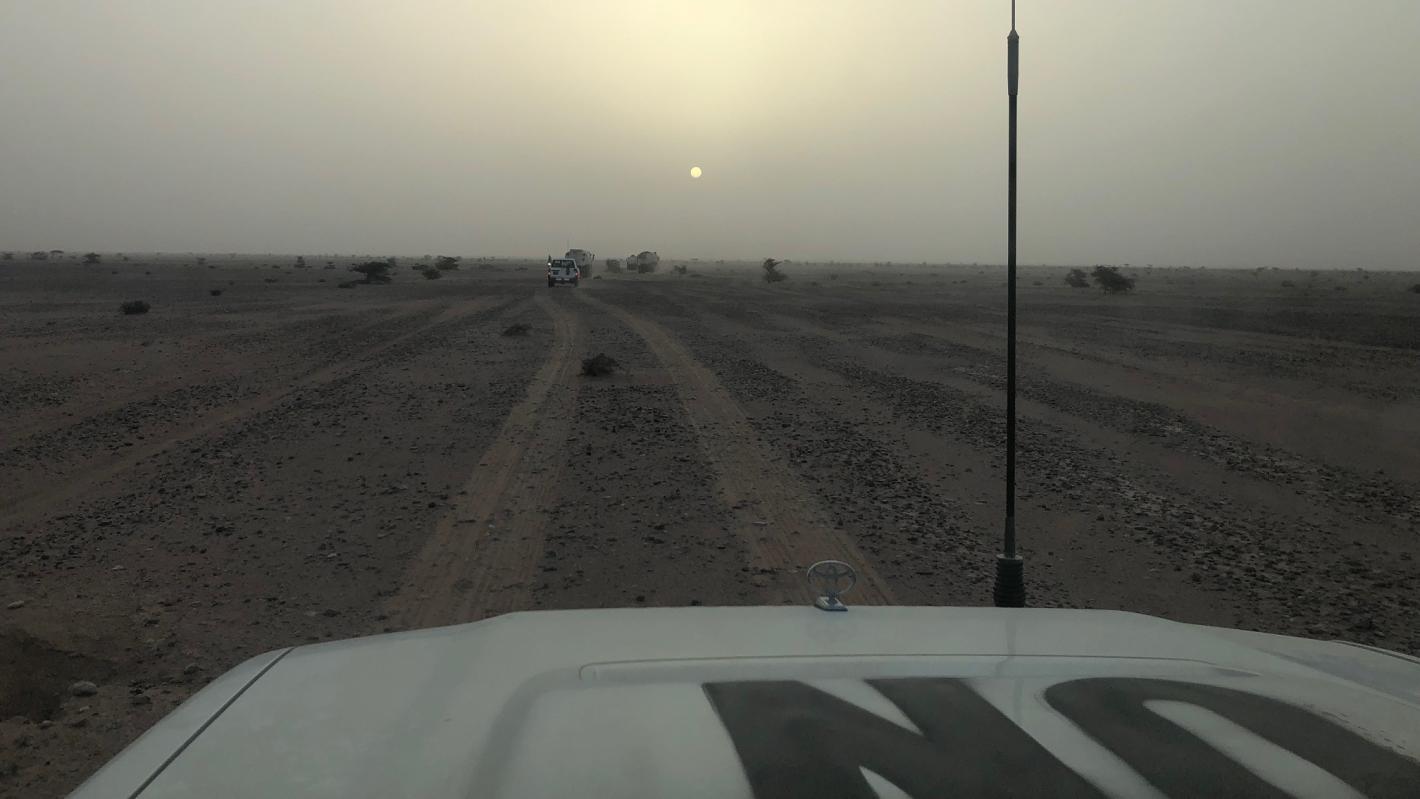
Western Sahara, a Territory on the north-west coast of Africa was administered as a colony of Spain until 1976. In the context of decolonization, both Morocco and Mauritania laid a claim to the territory, a claim which was opposed by the Frente Popular para la Liberación de Saguia el-Hamra y de Río de Oro (Frente POLISARIO), a Sahrawi liberation movement. When the 1975 Madrid Accords partitioned the Territory between Morocco and Mauritania, handing over Spain’s administrative responsibilities to the two countries, an armed conflict broke out between the Frente POLISARIO on one hand and Morocco and Mauritania on the other. Mauritania withdrew its claims on its portion of the territory in 1979, signing an agreement with Frente POLISARIO. Morocco subsequently came to administer the parts of the Territory vacated by Mauritania.
The United Nations has been seeking a settlement in Western Sahara since the withdrawal of Spain in 1976. In 1979, the Organization of African Unity (OAU) also became active in seeking a peaceful solution of the conflict.
Establishment of MINURSO
In 1985, the United Nations Secretary-General, in cooperation with the OAU, initiated a mission of good offices leading to "the settlement proposals", which were accepted on 30 August 1988 by Morocco and the Frente POLISARIO. In 1990, the Security Council approved the Secretary-General's report S/21360 containing the full text of the settlement proposals and the outline of the Secretary-General's Plan for implementing them. On 29 April 1991, the Security Council, in its resolution 690 (1991), decided to establish the United Nations Mission for the Referendum in Western Sahara (MINURSO) in accordance with the Secretary-General's report S/22464 which further detailed the implementation plan.
The referendum in Western Sahara was to take place in January 1992. However, in light of fundamental disagreements between the parties, it was not possible to proceed in conformity with the original timetable and the referendum has never been held.
MINURSO's Identification Commission (IDC) was established in July 1991 and, in August 1994, after completing the necessary groundwork, including securing the cooperation of the parties, MINURSO began the process of identifying potential voters. In May 1996, the Secretary-General suspended the identification process and most MINURSO civilian staff were withdrawn, including the police component which provided security and assistance to the IDC. In 2004, the Identification Commission formally completed its work, transferring all the documentation to Geneva. The MINURSO military component remained on the ground to monitor and verify the ceasefire, as it has done throughout its deployment.

Following several rounds of consultations by Personal Envoys of the Secretary-General to reach an agreement on the modalities of the referendum, the UN Security Council in 2006 asked the parties to formulate their own proposals on settling the conflict. In 2007, each party submitted their proposals.
Under the auspices of the Personal Envoy of the Secretary-General for Western Sahara, representatives of the two parties together with representatives of the neighbouring countries, Mauritania and Algeria, convened for two rounds of UN-sponsored talks in June and August 2007. Despite the continued divergence in positions, the renewed dialogue marked the first direct talks between the parties to the conflict in more than seven years. A third round was held in January 2008, and the parties came together for further informal meetings in August 2009 and February 2010. However, none of the meetings produced any movement on the core substantive issues.
Since the deployment of MINURSO in September 1991, the ceasefire generally held until November 2020, when Frente POLISARIO announced its withdrawal from it and declared that it was resuming armed struggle in order to achieve its aims, in addition to pursuing diplomatic and legal advocacy of its cause.
Throughout its existence, MINURSO has continued to fulfil its mandate by monitoring the ceasefire and the military developments and activities by the parties in the Territory, as well as reporting on general developments in and related to Western Sahara.
It has also supported the UNHCR confidence-building measures programme, to assist separated Sahrawi families to reunite with their family members on the other side of the dividing line. In addition, the Mission includes a UN mine action programme – find our more about its work here.
MINURSO remains the only impartial observer deployed across the Territory, both west and east of the berm, the sand wall that continues to separate the Moroccan and Frente POLISARIO military forces.

